These days, people have been rethinking tourism in Japan. While tens of millions of visitors flock to Tokyo, Osaka and Kyoto each year, it is now more common to get away from the city and see another side of Japan. Why not broaden your own horizons, and seek out YUKIGUNI’s deep mountain culture- only 70 minutes from Tokyo!
“Yukiguni Style” is the opportunity to see and do things surrounded by deep snow, just like the locals! Spending time in Snow Country has immense value any time of year, not just as a sightseeing opportunity, but also as an insight into a unique way of life.
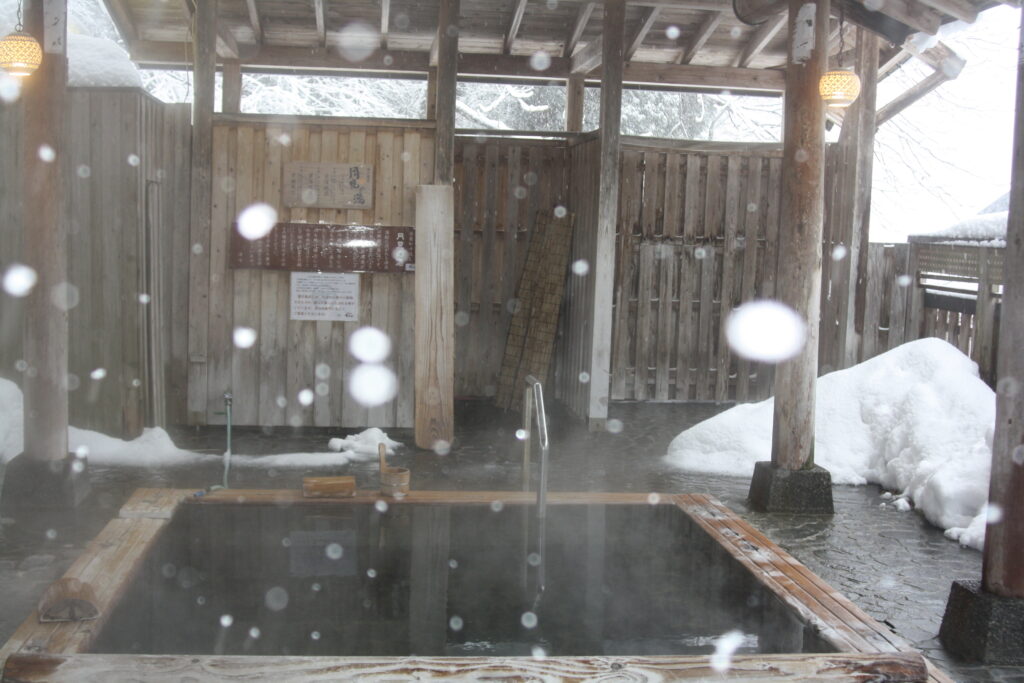
Yukiguni Onsen – Enjoying a Hot Spring Surrounded by Snow
Now for the star of the show at any of Snow Country’s hot spring villages: the piping hot onsen water! Within YUKIGUNI are many historic hot springs where people have visited for centuries to relax and recuperate. Especially in the cold winter months, there is no better way to relax than a long dip in a natural spring surrounded by deep snow!
According to historical records, there has been a hot spring at Matsunoyama Onsen in Tokamachi City for at least 800 years. Legend has it that people first discovered the hot spring after watching a hawk, who would come to the same spring every day to nurse its wounded wing. Travelers from around the country came to YUKIGUNI to experience these healing waters, and Matsunoyama Onsen soon established its reputation as one of the top 3 medicinal onsen in Japan. The hot spring at Matsunoyama has many other uses, including melting snow on the street during winter, cooking their trademark onsen eggs (also used as a traditional health remedy) and even powering the local geothermal plant!
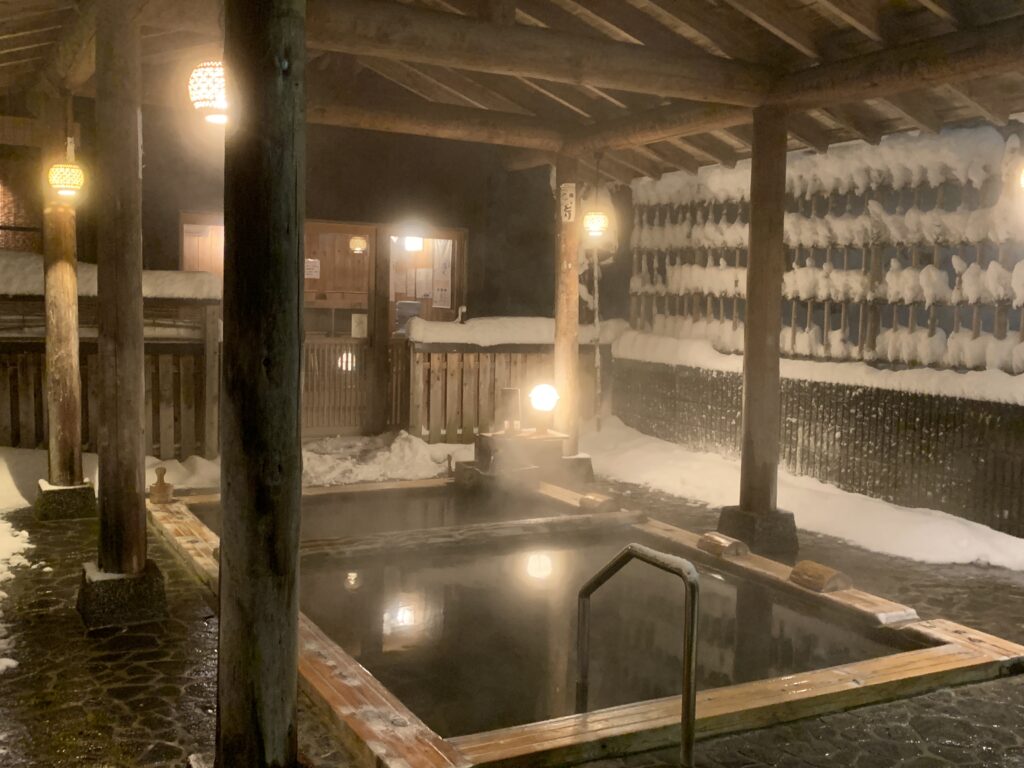
Among the many inns along Matsunoyama Onsen’s Main Street are the eco-lodges Tamakiya and Chitose. As for the latter, Chitose’s “Tsukimi no Yu” outdoor bath offers a great view of this snowy getaway. Chitose itself is known as a “beginner-friendly onsen” as it is English friendly, tattoo friendly, and a great introduction to Japanese onsen culture at this historic yet modern remote health spa.
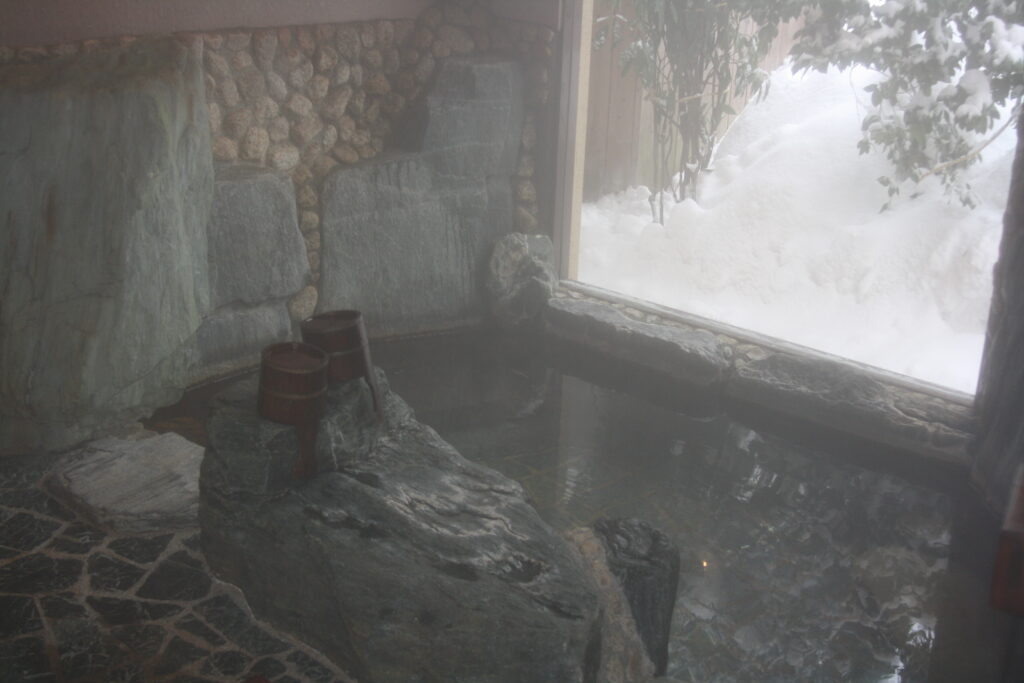
Speaking of our eco-lodges, by far the most exclusive is Syoubun in Minakami, a boutique inn with only nine guestrooms, each different from the others, except that they all come with a private onsen! There are also three more baths around Syoubun that can be reserved for a private dip. It is common, in addition to guests that stay the night, for people to come to Syoubun just to enjoy onsen and a meal from their farm-to-table kitchen.
-1024x626-1.jpg)
The origins of Yuzawa’s onsen go back even further to Takahan, one of the oldest hot spring inns in Japan! During the Heian Period of Japan in 1075, a man named Hanroku Takahashi travelled to a sparsely inhabited settlement in what was then the province of Echigo. While searching for food one day, he managed to track some wild animals to the source of a natural hot spring. After putting down roots there, his family built a hotel in that very spot, which was thereafter known as Takahan.
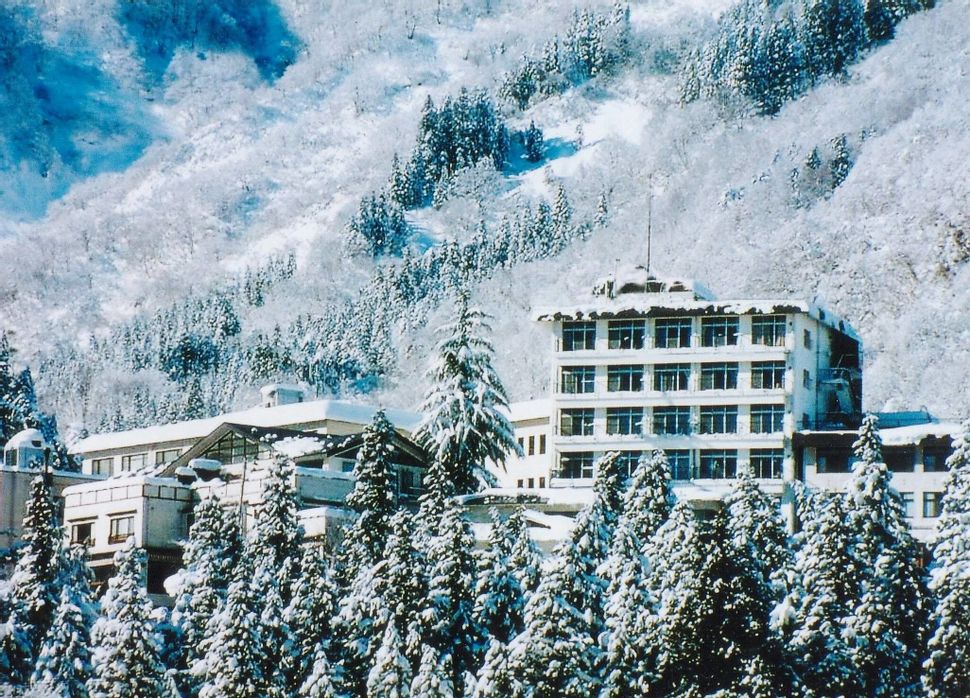
The Takahan Inn helped put the town of Yuzawa on the map, going from a small backwater to a hot spring mecca patronized by celebrities such as the Nobel Prizewinning author Yasunari Kawabata. Takahan continued to be passed down from one generation to the next, though the hotel would occasionally need to be renovated or relocated because of damage from avalanches. At the current Takahan’s “Tamago no Yu,” you can soak in hot spring water straight from the source up the mountain, which can be climbed in warmer months from a trailhead directly accessible from the inn itself. This onsen was named as such because it is a sulfur spring, which is said to make your skin smooth and soft.
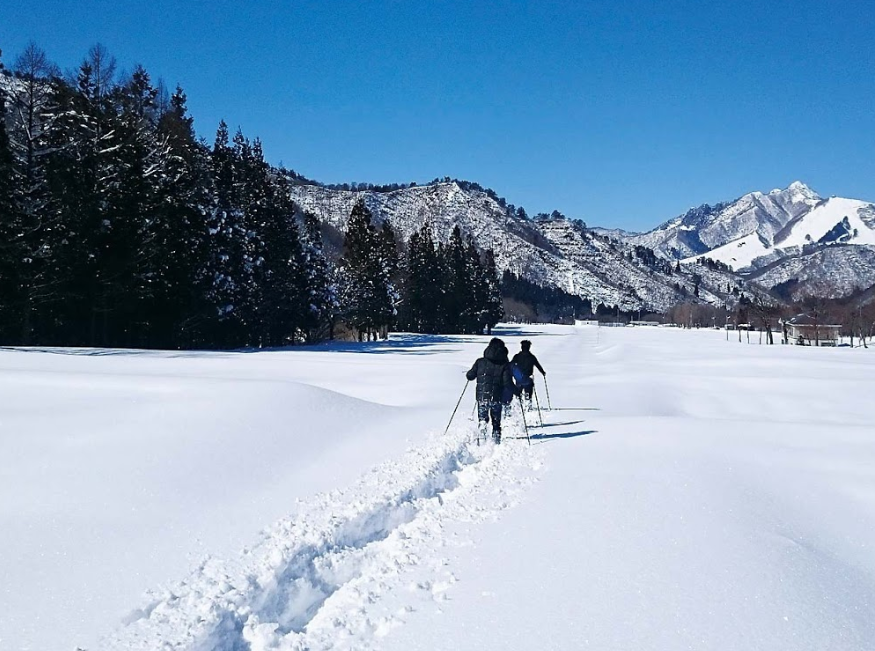
Things that grow under the snowy fields
Just as important as the snow itself is what grows underneath! The Snow Country Region is known as the breadbasket of Japan due to its large agricultural output. In particular, this area is famed for growing Koshihikari rice, which has become the most consumed variety of white rice in Japan. Koshihikari is known for its soft, sticky, and chewy texture, and is perfect for sushi and other traditional Japanese dishes. We encourage you to try this delicious rice at its source in YUKIGUNI.
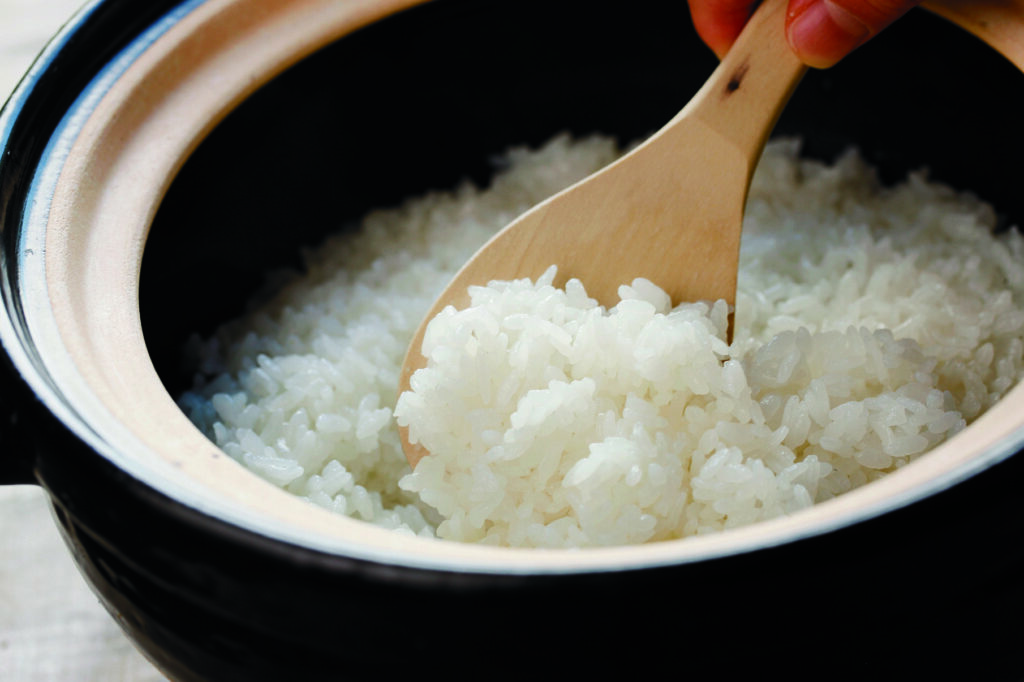
But that’s not all we have to offer hungry guests: Chief among our delicious local vegetables is sansai, as well as “yukishita ninjin,” which are a special variety of carrots famous for growing underneath the snow. Not only do they not freeze, but they are kept safe from insects, and the snow causes a chemical reaction that changes starches into natural sugar and amino acids, making these carrots noticeably sweeter.

Visitors can experience YUKIGUNI cuisine at some of our prestigious farm to table eateries. Restaurants like Irori Jinen serve their homemade mountain-fresh cuisine in the traditional fashion, and there are even Michelin starred restaurants here, such as the restaurant at Satoyama Jujo, that utilize sansai and other ingredients in new and innovative ways. If you like, you can even try your hand at picking sansai yourself during the green season. People living in Tokyo or other urban areas can also receive Koshihikari from the furusato nouzei hometown donation system. In nearby Minamiuonuma you can even visit an entire museum dedicated to rice!
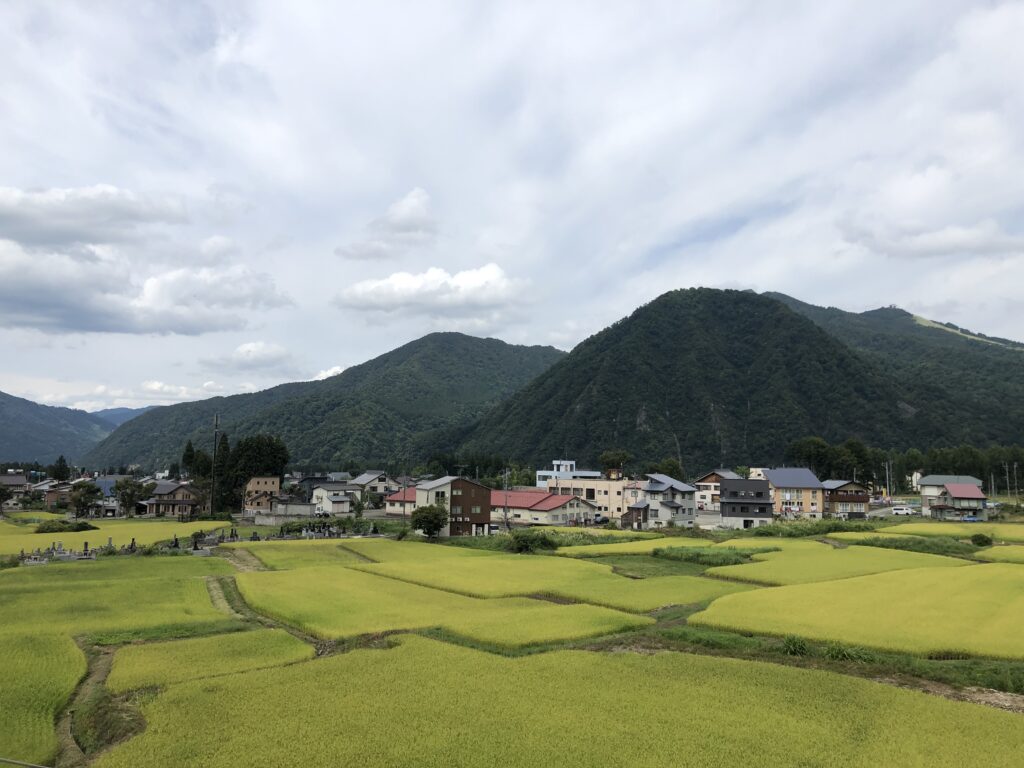
The Snow Country Region is especially well known for picturesque rice terraces, unique land formations that are also great to visit during the green season, such as those that can be found at Hoshitouge in Tokamachi and within Tsunan’s Naeba Sanroku Geopark.
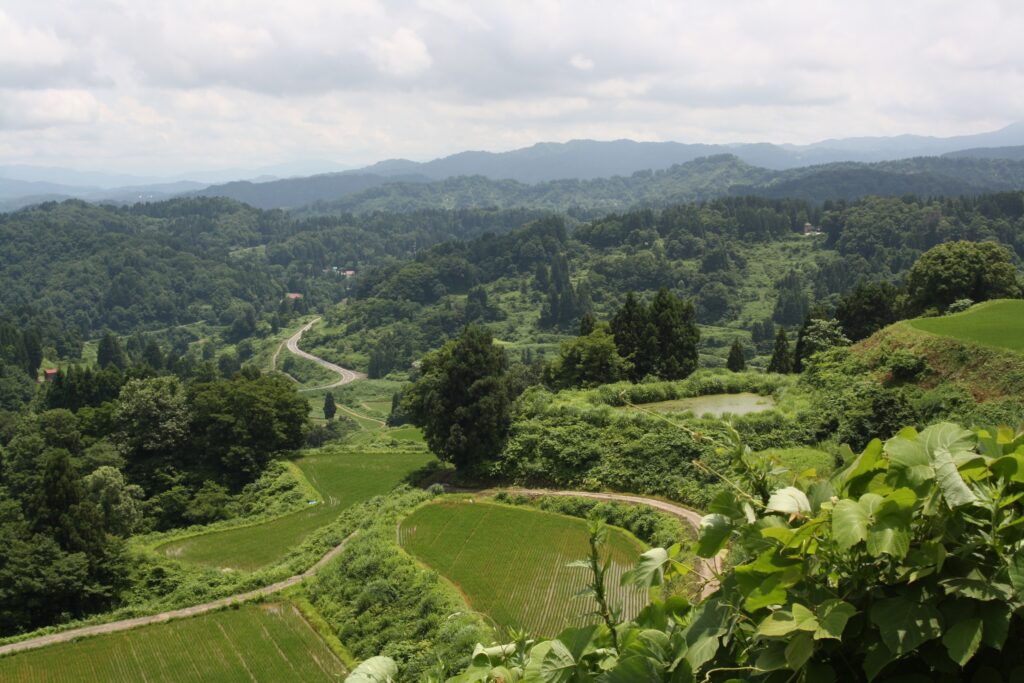
One such tour is the “Tokamachi Tanada Treks” tour through the fields and mountains of rural Tokamachi City. This is a 5 km hike through vast rice terraces, known as “tanada” – a hallmark of YUKIGUNI geography – as well as historic mountain roads. See grand old shrines, fresh streams, and fantastic rural views as you traverse these ancient mountain roads, while learning all about the local flora and fauna from expert guides! Click HERE for more information.
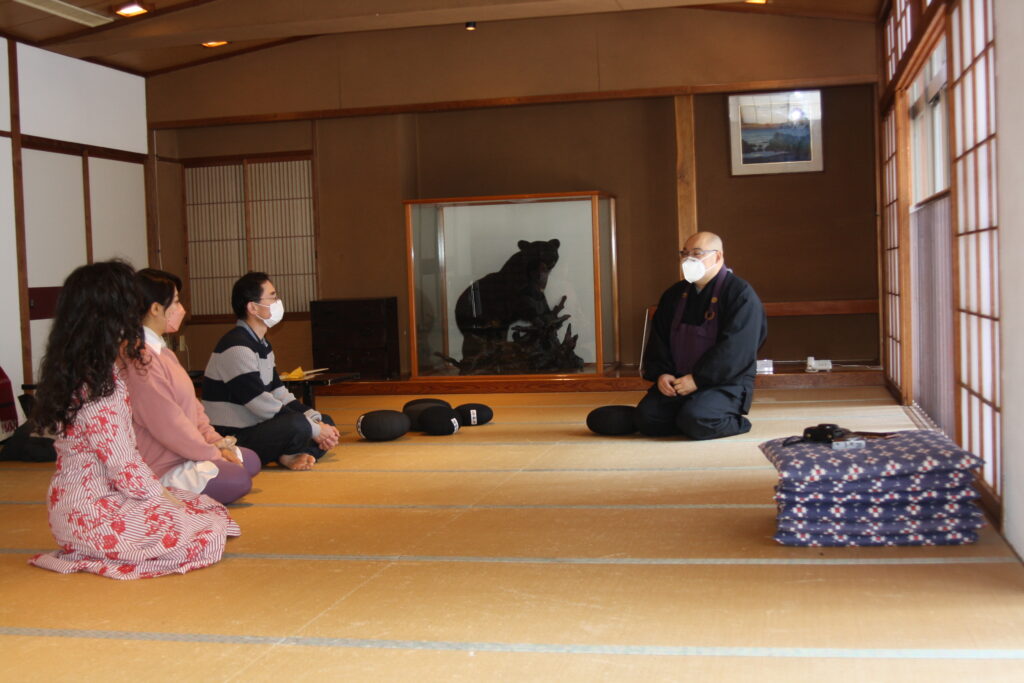
Contemplating our snow while in deep meditation
In YUKIGUNI, it’s not simply a matter of going over the snow, whether on skis or snowshoes, or taking a car or train through the wintry landscape to get from point A to point B, but also to just enjoy the snow in and of itself. Aside from learning all about the slow life, you can also learn to empty your mind, and appreciate the state of the winter world around you while doing zazen, or Zen meditation.
For those looking to meditate at their own pace, the eco-lodge ryugon is known for its serene relaxing atmosphere, and has a dedicated zazen relaxation space called Bishyou-tei overlooking their beautiful garden. You will be provided a quiet room with music, incense, zazen cushions, and a booklet detailing how to perform zazen meditation.
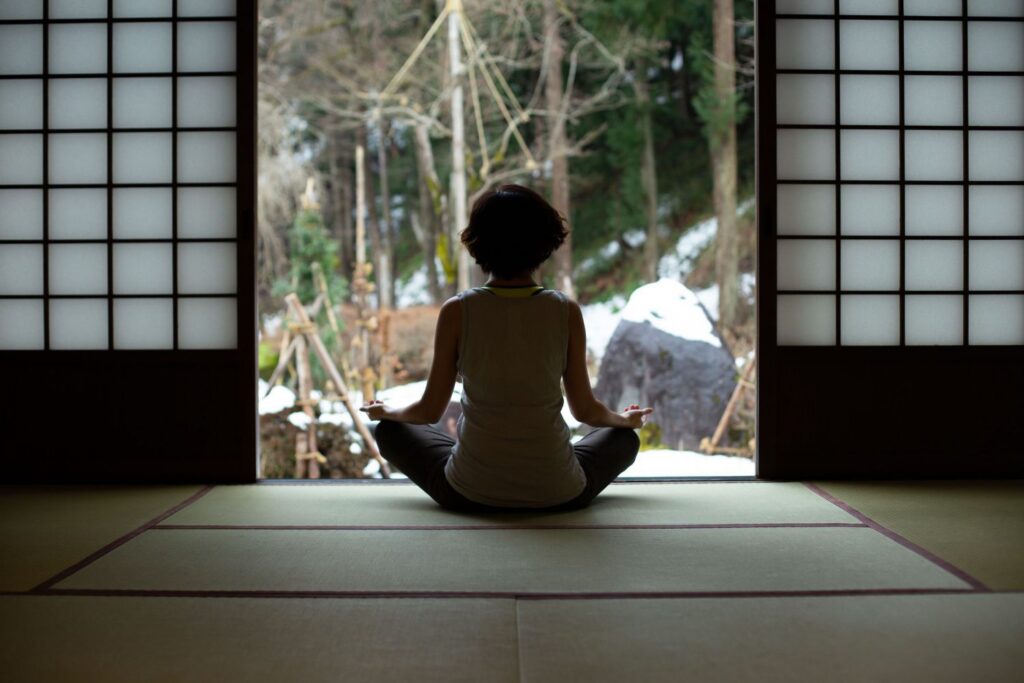
If you would prefer to meditate a bit closer to nature, the out-of-the-way Tochiomata Onsen village in Uonuma City is home to Jizaikan and its scenic outdoor hot spring. Traditionally, Tochiomata has been frequented by young women, who would also go to the nearby shrine to pray for a child. Now it is known as a great “hidden onsen” to get away from it all and enjoy peace and quiet. The rooms at Jizaikan are wide and spacious, and you have a variety of baths to choose from, which can be reserved and enjoyed privately for those not used to public bathing culture in Japan.
There are also special workshops you can participate in while a guest here. As Jizaikan is located nearby to the 500 year old Eirinji Temple, you can arrange to have a private lesson with one of their monks! Learn the philosophy and technique behind zazen. Once you know the basics, Zen meditation is something that can be done on your own in order to aid relaxation- why not give it a try?
If you would like to meditate at a temple itself you can do so at possibly the most famous temple in all of YUKIGUNI: Untoan. This temple is over 1,300 years old, and was patronized by two of the most powerful samurai families of Japanese antiquity: the Fujiwara clan, and the Uesugi clan. More recently, Untoan has been used as a filming location for popular historical period dramas. The chief priest at Untoan, who speaks some English, sometimes leads special Zen meditation lessons. Otherwise there is a zazen session once a month, and groups of 10 or more can reserve a lesson, depending on availability, at the large zazen hall, where you can see cherry blossoms in the spring.
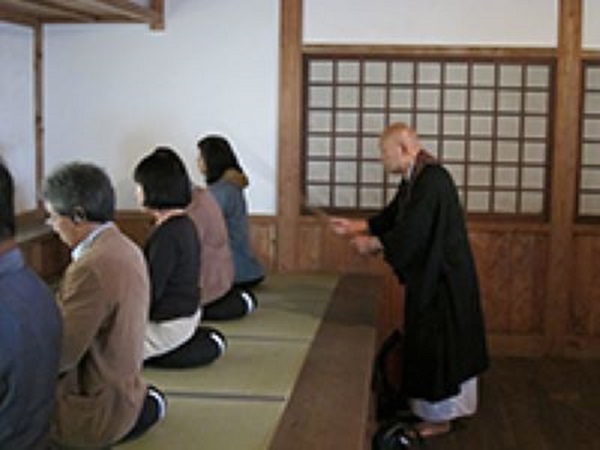

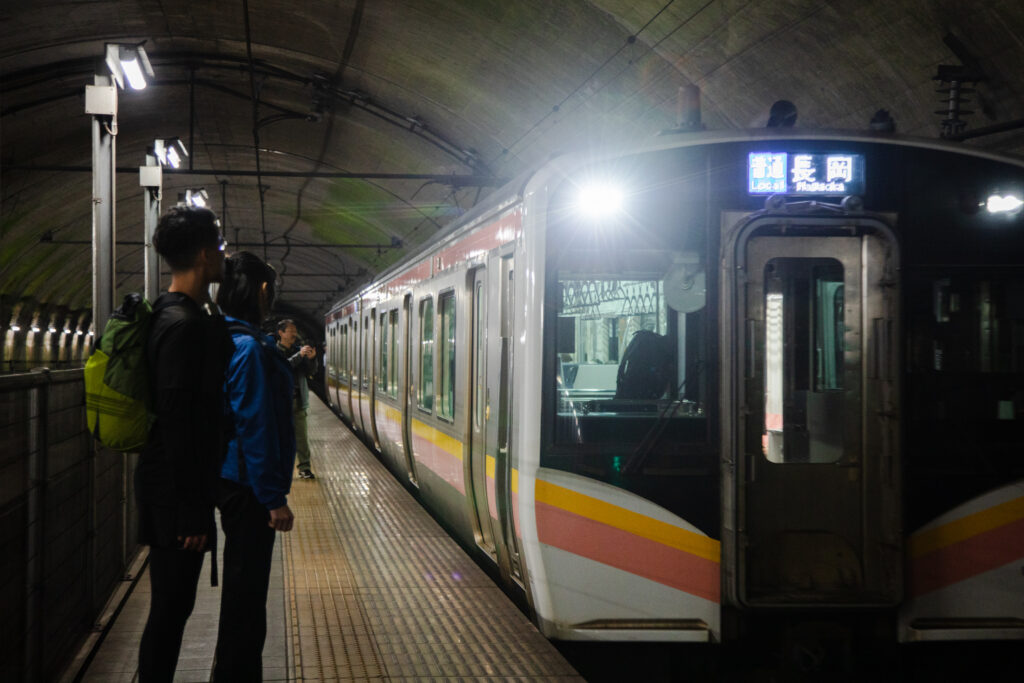
-1024x626-2.jpg)
